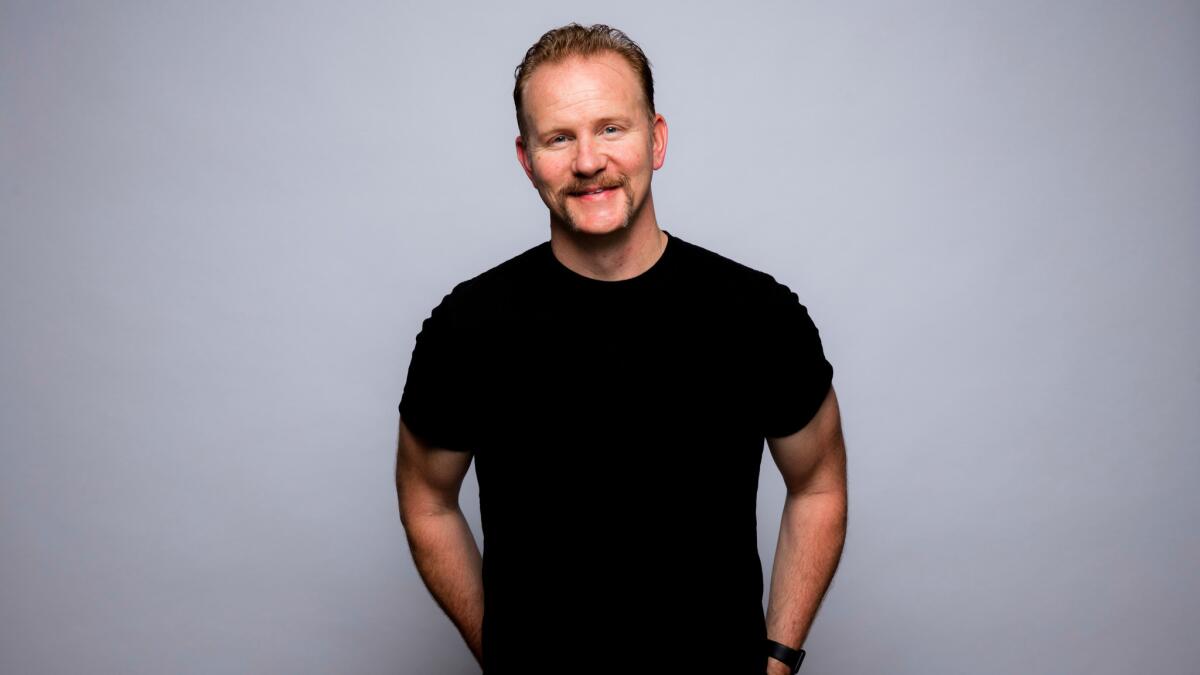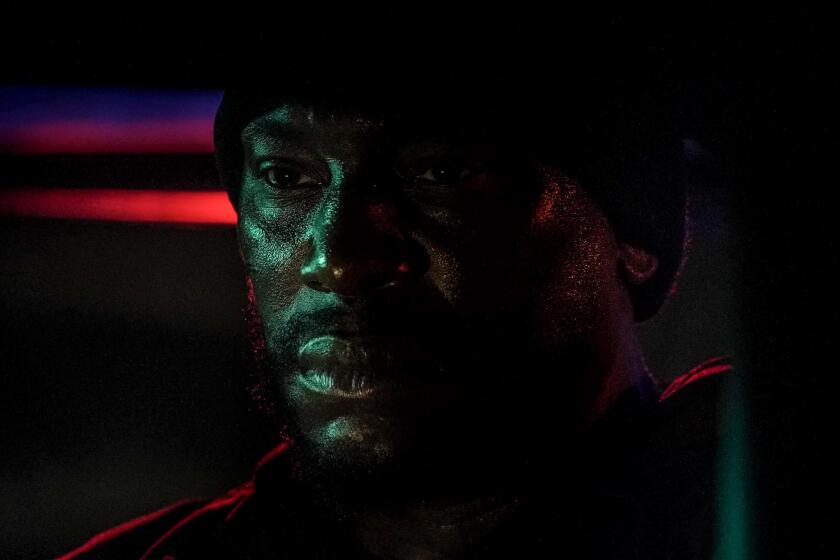With ‘Rats,’ Morgan Spurlock delivers the rare doc that also functions like a shock-horror movie

Sifting through this month’s Toronto International Film Festival lineup, there were plenty of titles that caught my eye. The Ryan Gosling musical “La La Land.” “Lion,” about an Indian orphan searching for his roots. …Did I mention the movie where Gosling sings and dances?
And then there was “Rats,” the latest film from documentary veteran Morgan Spurlock. “Oooh!” I thought. “This sounds cool! I bet I’m going to learn that rats aren’t nearly as creepy or revolting as I’ve always imagined! Kind of like ‘Shark Week,’ or something.”
Yeah, so I was wrong. Horribly, horribly wrong. Rats carry diseases that can make us seriously ill, their population rates are exploding and they evolve 10 times faster than humans, so we don’t even know how to kill them properly. It’s all very encouraging!
I started to learn all of these terrible things at a dinner in honor of Spurlock’s film, which to be quite honest, I had reservations about going to in the first place. A dinner in honor of a film about “Rats”? How does that sound like a good idea? I was fully expecting some sort of rat “delicacy” to be served, or for rats to be displayed in cages around the restaurant.
Alas, there was only kale salad and smoked rainbow trout on the menu. “No rats were harmed in the making of this dinner,” Spurlock assured the table as the event got underway.
I should note here how bizarre it is to eat dinner next to Spurlock, who at 45 is still best known for his 2004 film “Super Size Me,” in which he ate nothing but McDonald’s for one month. Particularly because he seems to be extremely health-conscious these days. He stuck mostly to chicken, and when a bowl of fried potatoes were placed in front of him, he promptly pushed them away. “Well, that just looks like carb-city,” he said.
But back to “Rats.” Why make a movie about them? Does anyone honestly want to think about these parasite carriers walking among us every day? (Clearly, the Discovery Channel thinks so, since it acquired the film and will broadcast it on Oct. 22. It’ll play at midnight in a couple of Landmark Theatres next weekend, too.)
“It’s not like every documentary has to save the world,” said Spurlock, who did, to be fair, make a concert film about the boy band One Direction. “We made a fantastic horror documentary that will scare you and enlighten you, but entertain you the way a movie should. The idea that docs should only be mission-driven is a misnomer.”
That being said, “Rats” does actually raise some interesting questions about all of the garbage humans produce — which rats, of course, thrive on — and how the poison rats ingest is affecting the food chain. The creatures, which originated in Mongolia and, after migrating to the New World, have been living in cities like Manhattan for upwards of 250 years, are quickly becoming immune to the rodenticides we use to try to kill them. But the other animals that eat rats, such as foxes and eagles, aren’t immune to such poisons. So when they eat rats, they die.
Meanwhile, the list of diseases rats carry — 5 million viruses on one foot! — is ever-expanding. The plague may sounds like an illness from the dark ages, but what about E-coli, salmonella or leptospira? Public health officials are constantly studying rats to monitor these changes, and what they’re finding is, frankly, horrifying. In one scene in the film, a researcher in New Orleans cuts into a dead rat to find a squiggling fly larvae that hatched from an egg laid under the rodent’s skin. I will never sleep again.
No one knows these horrors better than Ed Sheehan, a New York City exterminator who has spent 48 years in the pest control industry. He was also seated next to me at the “Rats” dinner, and so I asked him: “Ed, WHY?”
Money, pretty much.
“If you’re gonna pay me to go in there and do it, I got no problem,” said Sheehan, who speaks with the thickest New York accent ever. “We’ll come to an agreement and I’ll go in there and kill ‘em. Very simple.”
There are, of course, some who feel like Sheehan — that rats aren’t that bad. In the doc, we encounter some of them: Exterminators in Mumbai who walk through garbage piles in sandals killing rats with their bare hands. Restaurant patrons in Vietnam who feast on an entire meal comprised of different rat entrees. Spurlock even travels to a temple in Rajasthan where locals believe that rats are just the incarnated spirits of loved ones they have lost. Accordingly, they’re willing to drink from the same milk pan that hundreds of the rodents are lapping from.
After making the film, even Spurlock says he’s pretty desensitized to rats now. I mean, the guy went into the sewers of Paris and had dozens of the things running over his feet, so what do you expect? (New York City, by the way, wouldn’t let the director into its sewers, which is kind of terrifying in itself.)
The thing Spurlock still finds most troublesome about rats is the diseases they carry; Sheehan, meanwhile, fears how smart they are. The worst infestation the longtime exterminator ever saw, he said, was in a Brooklyn building owned by a local hospital. He tried everything: Cement, sheet metal, even shooting the rats with pellets, which is illegal. He went to the site five times a week for six months and all told, caught almost 500 rats. And there were still some he left behind.
“Rats are extremely intelligent, so it’s like a chess game,” said Sheehan. “They’ve always been portrayed as these terrible creatures. But I’ve seen rats take better care of their kids than some people. There’s just too many of them.”
amy.kaufman@latimes.com
Follow me on Twitter @AmyKinLA
More to Read
Only good movies
Get the Indie Focus newsletter, Mark Olsen's weekly guide to the world of cinema.
You may occasionally receive promotional content from the Los Angeles Times.











